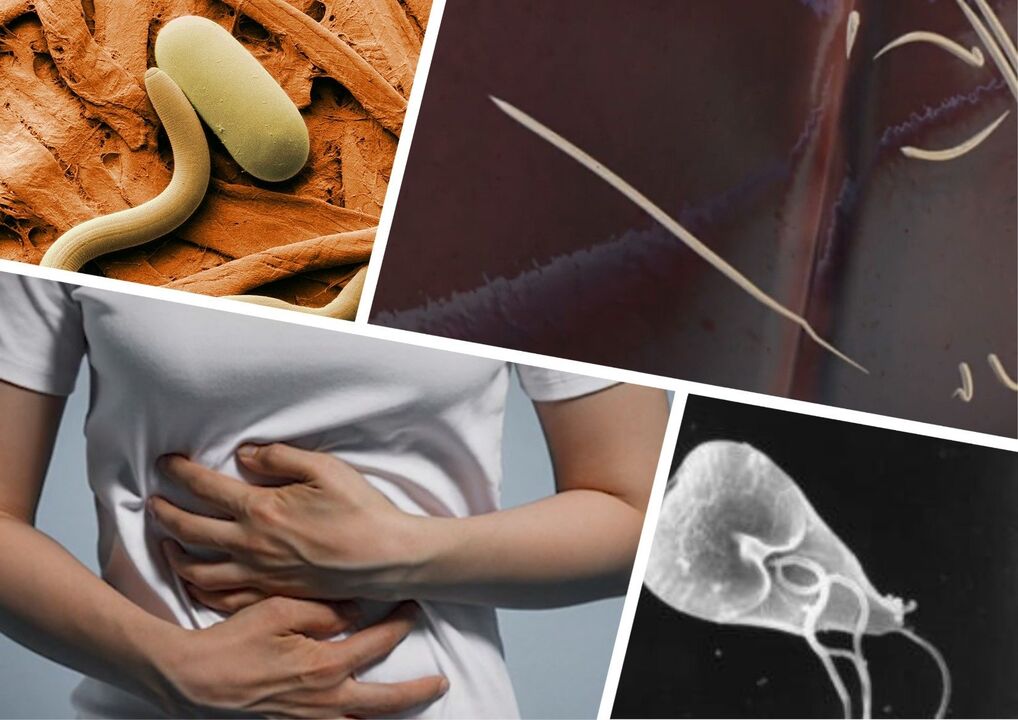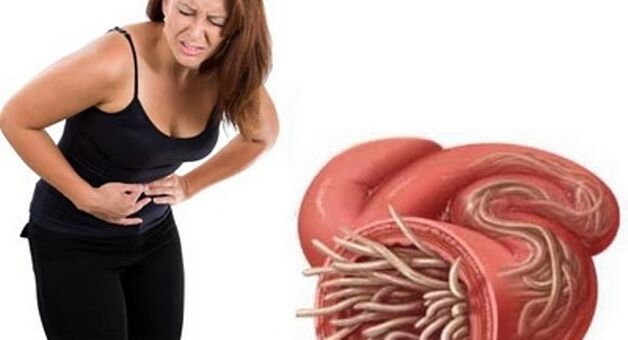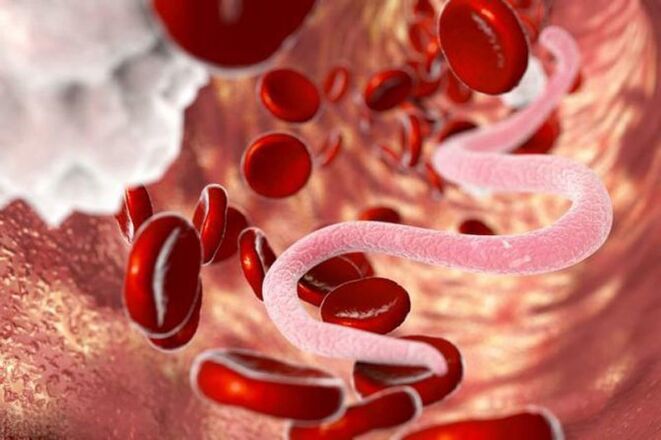
Worms - parasites living in the body (most often in the intestines) of humans and animals.You can get infected anywhere: according to doctors, about 80% of people are infected with helminths.
To effectively treat worms in adults, the drug must be selected taking into account the type of parasites living in the body.Otherwise, the treatment will be ineffective and can damage the patient's health.
Where and how can you become infected with worms?
You can put the infection anywhere: in nature, to a catering institution and even at home.Helminants are transmitted through unwashed hands, poorly washed vegetables and fruits, especially those growing on the ground.
Meat and fish that have undergone insufficient heat treatment can also cause infection.
Helminthosis is transmitted by a patient in a healthy person - through a handshake or contact with saliva.Most often worms are found in children: they are infected through ordinary toys, unwashed hands.
If the family has a child with helminthiasis, all adults should also undergo prevention so as not to become a new source of infection for the child after healing.
You can be infected by a pet.Therefore, antravity of cats and dogs is needed regularly - every three months.And after contact with homeless animals, wash your hands completely.
Symptoms indicating the presence of parasites
Signs of the presence of worms in the intestine are a sharp change in body weight (weight loss or weight gain due to metabolic disorders), disturbances in the digestive system, which are easy to confuse with an acute or chronic gastrointestinal disease.The main signs indicating that a person has a helminthic invasion:

- Disorder of stools - diarrhea, constipation, liquid stool (when the intestines are emptied no more than 2 times a day, but the chair is not decorated).
- Bloating, abdominal pain.
- nausea
- Vomiting
- Lack of appetite.
- Pain and spasms in the gut.
In the process of vital activity, worms distinguish toxins that can affect people differently.In some, they cause frequent headaches, in others - irritability or disorder of food behavior, for third rash - of the skin, all kinds of allergies.
In any case, against the backdrop of helminthic invasions, the body's protective functions decrease, immunity weakens.Such a person is more likely to suffer from colds.
Worms: What species do they parasitize in people?
Not all types of poisons are dangerous to humans: some of the parasites live only in animal organisms.
About 70 species of helminths are parasitized in people, which are divided into 3 main groups:
Round worms
A few inches are reached in length, in the transverse section their body has a round shape.This is one of the most common types of helminths.The nematod group includes pinw and ascarides worms, which are most commonly diagnosed, especially in children.This also includes blazole.They live mainly in the intestine.
Ribbon
The length can reach 18 m, the average length is 1-5 m.The body is flat, has a cup of suction on the head, which is attached to the intestinal mucosa.These are strips and upholstery that take root mainly in the small intestine, but can also be placed in other organs.Their characteristic feature: Helminth itself, not a larva, falls into the human body: matures in the body of an intermediate host.They are infected with animals as well as when using meat and fish that have undergone insufficient heat treatment.
Flat
They have a wide, flat body, reach a few inches in length, less often - one and a half meters.These are different types of prejudice, bicomer, trematod.They can be placed in the ducts (bile ducts, lacrimal and almost any organ).
How to determine the presence of Helminthias?

The easiest way is to pass the feces analysis.But for accurate diagnosis, you need to take an analysis 3-4 times, because during a period when parasites are not active, it is quite difficult to find out their presence.
Antibodies are produced in some types of helminths in the blood.By means of a blood test, you can determine the presence of these markers and set the type of worms.But for that you will need to do some tests - for each expected view.
Who treats Helminthias?
The main Helminth specialists are a specialist in parasitologist-infectious disease.But the full -time parasitologist is far from every clinic: usually these specialists work as regional clinics and research institutes.
A specialist in infectious disease or gastroenterologist based on the test results may prescribe a treatment regimen.This will help you choose the best anti -mililes and safe tools for a person that will help to run the worms quickly without consequences for the body.
Self -saver in this case is quite dangerous: the worm tablets are quite toxic, they have many contraindications.If the choice of worm type, the medicine will at least be ineffective.If the dose is exceeded, anthelmintics can cause serious poisoning.



























